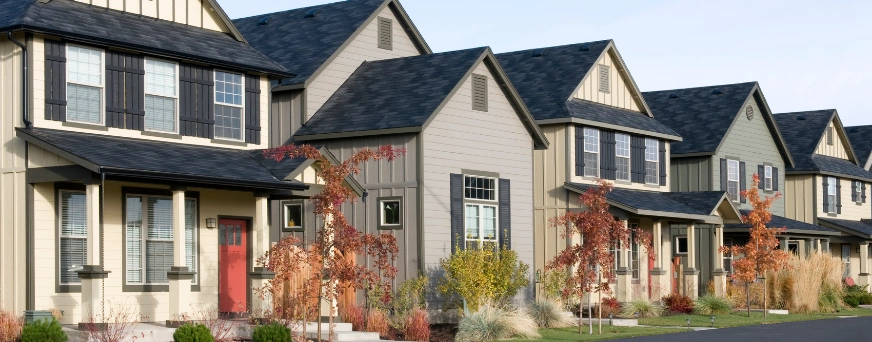Exploring Senior Housing Options: Finding The Right Fit For Your Lifestyle
Finding the right place to live as you age can shape your independence, comfort, and peace of mind. Seniors in the United States have more choices than ever, but understanding those choices is the first step to making the right one. Whether you're making a plan or ready to move, learning about different senior housing options available today can help you match your living environment to your needs, health, and lifestyle.
Find the best fit for your lifestyle with clarity and confidence.
Understanding Senior Housing Options
Senior housing is not one-size-fits-all. From fully independent communities to skilled nursing facilities, today’s options reflect a range of care levels, lifestyles, and budgets. Understanding these choices empowers seniors to find a living situation that supports daily routines and long-term well-being. The right housing decision can reduce stress, promote safety, and improve daily satisfaction.
Independent Living Communities
Independent living is ideal for older adults who can manage daily tasks but want fewer home maintenance responsibilities. These communities often include:
● Private apartments or condos
● Shared dining areas and recreational facilities
● Optional housekeeping and meal services
This option works ideally for active seniors who want to simplify life without sacrificing freedom. Many also enjoy a built-in social community and on-site activities that help prevent isolation.
Assisted Living Facilities
Assisted living combines residential housing with help for daily tasks such as bathing, dressing, or medication reminders. It balances independence with access to personal care. Many assisted living facilities also provide:
● Daily meals and laundry services
● Social and recreational programs
● On-site staff available 24/7
Assisted living is a strong fit for seniors who need support but don’t require intensive medical care. It offers families reassurance and more autonomy than a nursing home.
Nursing Homes
Nursing homes provide around-the-clock skilled nursing care for seniors with complex health needs. These facilities offer:
● Assistance with all daily living activities
● Access to licensed nurses and rehabilitation services
● Supervised medical care
Nursing homes are most appropriate for seniors with chronic conditions or recovering from serious illness or surgery. They offer a structured environment focused on health, safety, and specialized care.
Continuing Care Retirement Communities (CCRCs)
CCRCs offer multiple levels of care in one location, from independent living to skilled nursing. As needs change, residents can transition to higher levels of care without relocating.
Advantages Of CCRCs include:
● Long-term stability and predictable transitions
● Diverse amenities like fitness centers, events, and dining
● Greater peace of mind for families
In-Home Care Services
For seniors who prefer to age in place, in-home care provides personalized support while staying at home.
Benefits:
● Comfort of familiar surroundings
● Flexible care schedules
● One-on-one attention
Challenges:
● May require home modifications
● It can be costly without insurance or family help
● Limited access to social activities
Factors To Consider When Choosing Senior Housing

Choosing the right senior housing option means understanding what matters most for your health, happiness, and future needs. Personal preferences, financial considerations, and proximity to loved ones all play a role in making a confident decision.
Assessing Personal Needs
Start by evaluating your current and anticipated care needs.
● Do you need help with mobility, meals, or medication?
● Would you benefit from 24/7 support or occasional check-ins?
● How important are social activities or group settings?
Understanding your physical health, cognitive abilities, and lifestyle goals can narrow down your choices. If you're recovering from a recent illness or managing a chronic condition, you may need more support than someone seeking a socially active, low-maintenance environment.
Budgeting For Senior Housing
Senior housing costs vary widely. Some communities charge monthly fees, while others require a large upfront investment.
When budgeting:
● Compare the cost of staying at home versus moving
● Factor in services like meals, utilities, and transportation
● Ask about additional fees for care or amenity upgrades
Planning helps prevent financial strain and ensures long-term comfort. Some options, such as assisted living or continuing care communities, offer bundled services, while others charge separately for each service. Understanding the total monthly cost can help you avoid surprises and stay within your means.
Location And Proximity To Family
Where you live affects your quality of life. Being close to family, friends, or familiar neighborhoods can make transitions easier.
Consider:
● How often do you want to see your children, grandchildren, or close friends?
● Do you need easy access to medical centers or specialists?
● Would you prefer a walkable community or rural tranquility?
Choosing a location that reflects your values and supports your daily life adds comfort and convenience. For many seniors, staying in a familiar region or climate offers emotional reassurance and smoother day-to-day living.
Resources For Seniors Exploring Housing Options

Finding the right place to live starts with reliable information and support. Seniors can access trusted resources to compare housing options, understand costs, and get help navigating care choices. Whether you're looking for independent living or specialized care, guidance is available to help make informed, confident decisions.
Explore these sources to begin your search:
● Eldercare Locator: Connects seniors with local agencies and services (800-677-1116)
● Area Agencies on Aging (AAA): Offer housing guidance, care assessments, and referrals
● HUD’s Housing for Seniors: Provides details on subsidized and affordable housing
● National Council on Aging (NCOA): Offers tools and articles on senior living and financial planning
● AARP Housing Resources: Delivers checklists, guides, and comparison tools
● State and local housing authorities: Share low-income or senior housing availability
● Local senior centers and nonprofits: These often host housing workshops or referrals
Many of these organizations also provide support for caregivers, financial assistance, and guidance on navigating long-term care options. Reaching out early can make transitions smoother and reduce stress for seniors and their family members.
Conclusion
Choosing from today’s senior housing options in the United States is not just about where you want to live, but more about how you want to live. By understanding your needs, exploring different care levels, and using trusted resources, you can find a home that supports your comfort, safety, and independence.
Take the next step with clarity, knowing the right housing choice can help you thrive in the years ahead.























